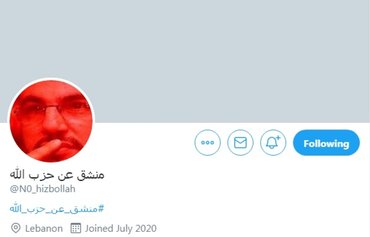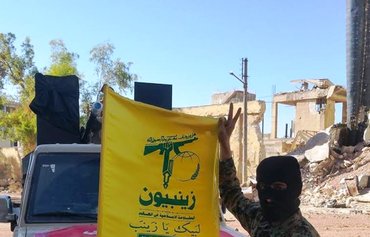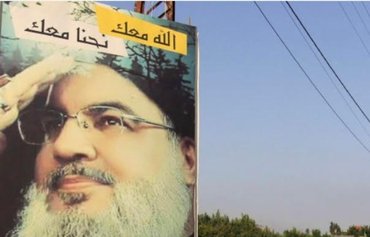BEIRUT -- Hizbullah has been quietly taking back the weapons it had doled out to the Resistance Brigades (Saraya al-Muqawama), an affiliated paramilitary group, in a move analysts said is a sign of growing discord between them.
Following armed clashes in Khalde, south of Beirut, during the summer, Hizbullah has been concerned that weapons in the hands of the Resistance Brigades may be used against it.
Hizbullah has been holding meetings to facilitate the handover of weapons throughout the western, central and northern Bekaa Valley, The Lebanon Debate reported November 30.
The meetings follow armed clashes in August in Khalde between Hizbullah supporters and Sunni residents, during which least two people were killed.
The clashes erupted after the Hizbullah supporters raised a banner that Sheikh Omar Ghosn and his followers, who include some Sunni tribes, found offensive.
Some media outlets reported that the clashes had broken out over Hizbullah's raising of Ashura banners. But others claimed the fracas was over a portrait of Hizbullah operative Salim Ayyash.
Ayyash was found guilty in absentia of murder and terrorism for his role in the 2005 bombing that killed former Lebanese prime minister Rafik al-Hariri, and on December 11 received five life sentences for his crime.
During the Bekaa Valley meetings, Hizbullah officials persuaded the Resistance Brigades to hand back their weapons in exchange for "better and more-effective weapons", according to The Lebanon Debate.
But several sources say that Hizbullah is taking back its weapons from the Resistance Brigades over concerns that they might turn those weapons on Hizbullah.
The Resistance Brigades, under the direct command of Hizbullah commanders, are irregular militias comprising Sunni, Christian and Druze elements from various regions, particularly the Bekaa Valley.
They receive training in party-run camps, side by side with Hizbullah recruits.
Fraying ties with Hizbullah
Hizbullah’s move to reclaim weapons from the Resistance Brigades "is a decision that was taken to get certain areas under control and end the military presence in other areas", said security expert Naji Malaeb, a retired military officer.
Hizbullah created the Resistance Brigades in order to penetrate other sects, challenge the Sunni community, and unify efforts under the umbrella of serving Iran's interests, he said.
The Resistance Brigades "gained acceptance among impoverished Sunnis", he said, but ties with Hizbullah began to fray as its members became increasingly aware of the extent of the party's dominance over Lebanon's politics.
Hizbullah decided to take control of the situation by reclaiming weapons given to the Resistance Brigades out of fear they might turn against it, as was the case in Khalde in August, Malaeb said.
"Hizbullah is reacting by seeking to take control of the situation, which explains the decision to repossess the weapons of the Resistance Brigades in the Bekaa areas," he said.
The party also has become aware that the majority of the Lebanese public, including members of the Resistance Brigades, "no longer trust it and see it as implementing the Iranian will", he added.
'A precautionary action'
Political analyst Johnny Mounayer said that Hizbullah's decision to reclaim weapons from the Resistance Brigades is a "precautionary action in anticipation of the difficult days that lie ahead for Lebanon".
The economic crisis and ongoing social strife might lead to clashes, he said.
"Perhaps by taking this decision, Hizbullah wanted to take control of the situation on the ground, especially as the majority of the members of the Resistance Brigades are Sunnis," he said.
Like most Lebanese, this segment of the population is suffering from poverty and financial distress, which have driven them to the streets to protest, he said.
This increases the likelihood that there will be armed clashes, he added, and that such fighting would make Hizbullah a target.

![Members of the Resistance Brigades, a paramilitary group aligned with Hizbullah, march in a military parade in southern Beirut in this undated photo. [Al-Mashareq]](/cnmi_am/images/2020/12/28/27409-Lebanon-Beirut-militants-600_384.jpg)






